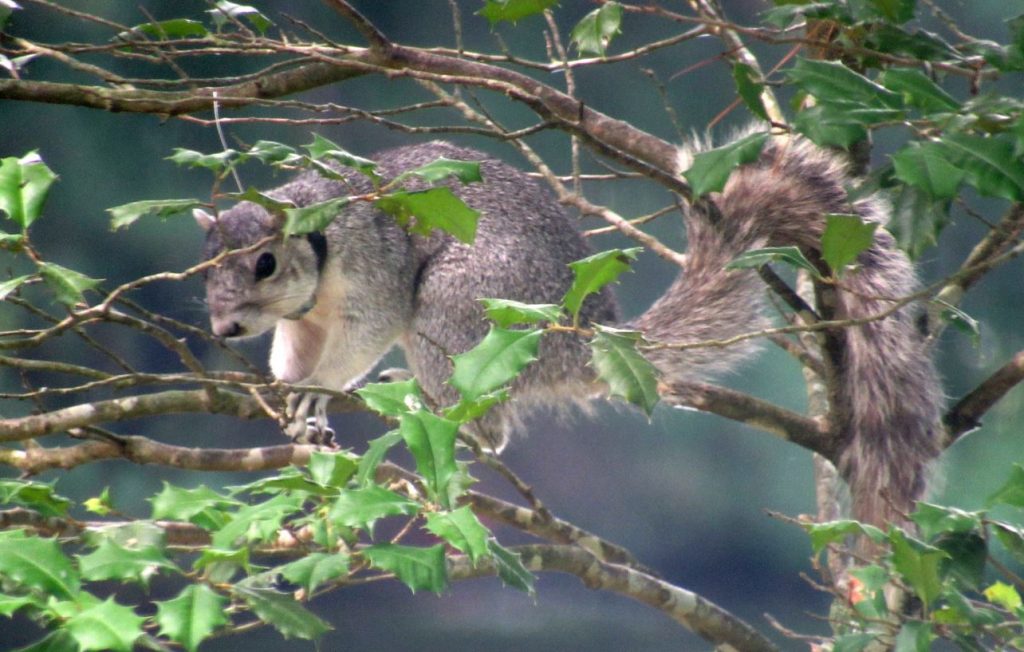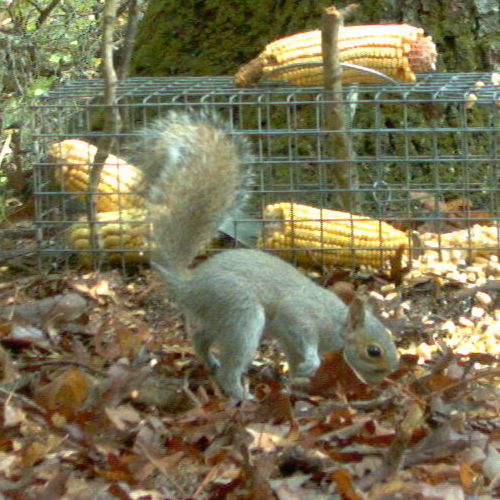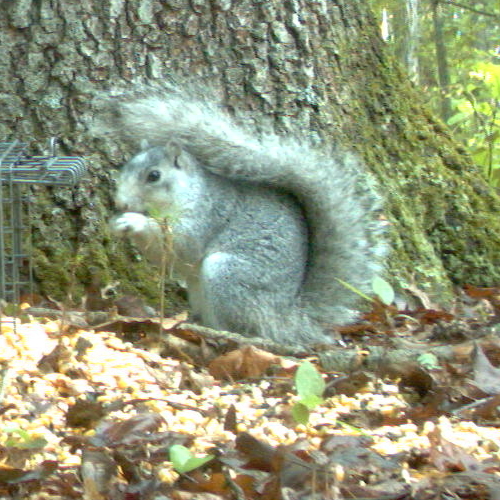The DNREC Division of Fish and Wildlife is implementing a conservation plan for the Delmarva fox squirrel. This sub-species of the fox squirrel, found only on the Delmarva Peninsula, is rare in Delaware. As part of the conservation plan, DNREC has begun a project to move squirrels from Maryland into southern Delaware.

The Delmarva fox squirrel (Sciurus niger cinereus) is a Delmarva specialty; a natural symbol of the region it calls home. They are larger than gray squirrels, with fluffy tails, striking silver coloration and calm demeanor.
By the 1960s, the distribution of the species was down to less than 10 percent of its historic range. It was among the first species listed under the Federal Endangered Species Act in 1967.
The species has since rebounded in Maryland. In 2015, the U.S. Fish and Wildlife Service (USFWS) announced that it was stable enough to remove it from the federal endangered species list.
Despite overall population gains, the Delmarva fox squirrel is still rare in Delaware. The state’s conservation plan will to help put the Delaware population back on its feet.
The conservation plan lays the groundwork for re-establishing the species in Delaware. It includes translocating squirrels from Maryland to Delaware, actions individuals, foresters, developers and landowners can take if they wish to attract and support the species, and an education component to increase awareness.
Translocation is a central part of the plan. It involves moving animals from robust populations to suitable and, usually, unoccupied habitats.
Establishing new populations will take four or five years. The plan calls for monitoring populations after they are established.
Once reproduction is documented in all the new and existing populations, some dispersal from the translocation sites has occurred, and all populations are stable to increasing, the state will reevaluate the status of the species.
Translocation of Delmarva fox squirrels into Delaware began in the fall of 2020. Thirty Delmarva fox squirrels were moved from Maryland to the Assawoman State Wildlife Area. They were moved in two groups, in September of 2020 and May of 2021. It was the first of a planned series of translocations to at least three locations in Delaware over a five-year period.
During the second translocation, four squirrels were released onto Redden State Forest in the fall of 2021 and an additional 11 squirrels were released the following spring. Fifteen more will be added in spring 2023.
The third site is Trap Pond State Park, where 15 squirrels were released in spring 2022, with another 15 planned for fall 2022.
Translocation has proven to be an important and effective tool for increasing the distribution of this species.
Staff from the Division of Fish and Wildlife are leading the project, working with the Maryland Department of Natural Resources, the U.S. Fish and Wildlife Service, the U.S. Department of Agriculture and a researcher from the California University of Pennsylvania for overall planning.
They are partnered with the Delaware Department of Agriculture’s Forest Service for the Redden State Forest Translocation and with the DNREC Division of Parks and Recreation for the Trap Pond Translocation.
You can help bring back the Delmarva fox squirrel in Delaware. Keep an eye out for the squirrels as they make their comeback in Delaware. Take note, take photos, and report what you see.
They are expected to show up on game cameras so please send those photos as well.
Delmarva fox squirrels are larger than the more common Eastern gray squirrel. They have slightly different coloration and a more limited habitat.
Eastern gray squirrel
(Sciurus carolinensis)

Size: Smaller
Fur: Gray; usually with brown on back and tail
Tail: Not as full
Ears: Long, pointy
Neck: Narrow
Habitat: Woodlands in urban, suburban, and rural areas
Delmarva fox squirrel
(Sciurus niger cinereus)

Size: Larger
Fur: Silver-gray sometimes with markings
Tail: Fluffy, longer, fuller
Ears: Short, stubby
Neck: Short, stocky
Habitat: Woodlands in rural areas
For more information, please contact Danielle Minter, at 302-735-3600.
Related Topics: conservation, delmarva fox squirrel, dfw, fish and wildlife, habitat, wildlife